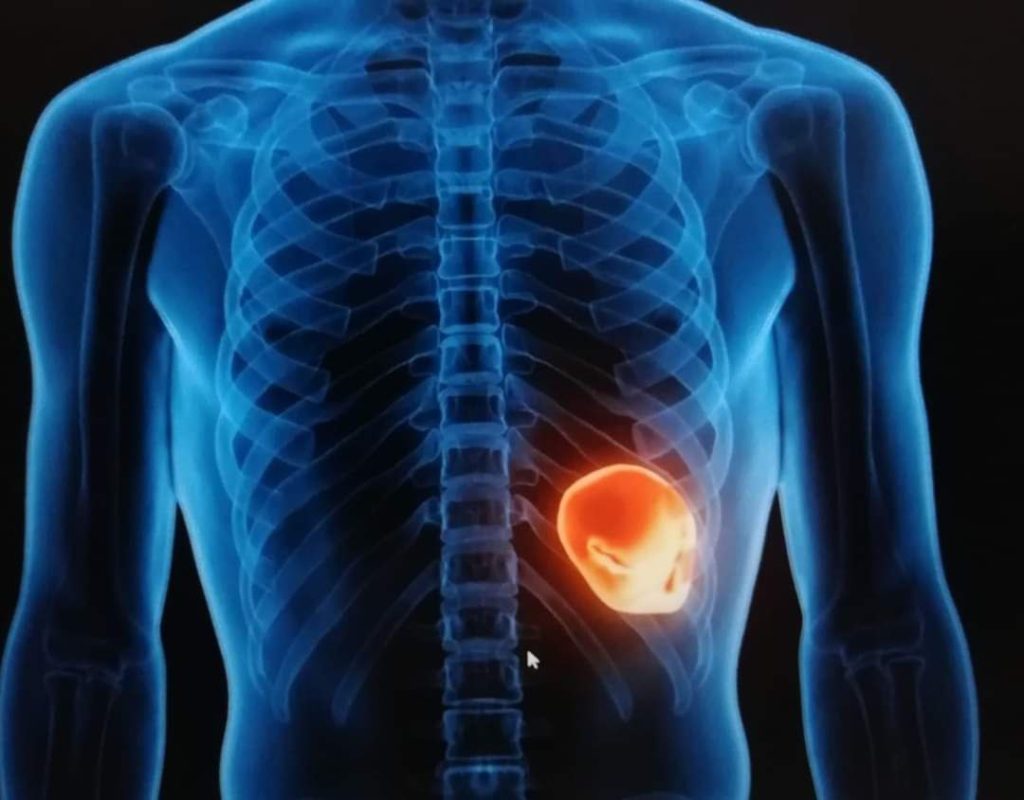Kidneys psychosomatics – What does the body tell us?
Kidneys psychosomatics. The kidneys are important organs in the human body, responsible for a number of vital functions that maintain our health and well-being.Located in the lower part of the torso, on either side of the kidneys, these pear-shaped organs play a key role in filtering the blood, removing waste matter and other substances from our system. Every day, our kidneys process approximately 120 to 150 liters of blood, producing 1 to 2 liters of urine, which consists of water, salt and waste products. In addition to waste disposal, the kidneys are also responsible for regulating the levels of electrolytes in the body, such as sodium, potassium and phosphate, and for maintaining the balance of acid and base. They play a key role in regulating blood pressure, activating the renin-angiotensin-aldosterone system, as well as in the production of red blood cells, through the hormone erythropoietin. All these functions make the kidneys essential in maintaining homeostasis in the body, which shows how important it is to take care of your kidney health through adequate hydration, a balanced diet and avoiding harmful habits such as the excessive use of drugs that can harm the kidneys.
The urinary bladder is a key organ in the human urinary system, responsible for temporarily storing urine until it is decided to be expelled. Located in the pelvic cavity, behind the pubic bone, the urinary bladder is an elastic, a muscular organ that can expand considerably to retain urine, enabling it to hold between 300 and 500 milliliters of fluid in most adults. The functionality of urination depends on the complex interaction of the nervous system, muscles, sphincter and urethra. As the bladder fills, the walls stretch, triggering reflexes that signal the need to urinate. Control over this process enables adults to choose a suitable time and place to masturbate. Maintaining the health of the urinary tract involves regular bathing to avoid infections and other potential complications, such as urinary tract infections, which can affect the quality of life. Adequate fluid intake, especially water, and avoiding irritants such as caffeine and alcohol can also benefit the health of the urinary tract, making it a vital organ for the overall improvement and functionality of the urinary system.
Psychosomatic illnesses in infants – kidneys psychosomatics
These conditions emphasize the complex interaction between the mind and body, where emotional and mental stress can lead to physical symptoms or worsen existing health problems. Although the relationship between mind and body has been recognized for a long time, modern medicine and psychology are increasingly studying and embracing psychosomatic medicine as an important field. Psychosomatic illnesses can cover a wide range of conditions, including but not limited to, gastrointestinal conditions such as irritable bowel syndrome, cardiovascular problems such as hypertension, respiratory problems such as asthma, skin conditions such as eczema and psoriasis, and musculoskeletal problems such as chronic pain and fibromyalgia. Often, the diagnostic process excludes organic causes before the condition can be considered primarily psychosomatic. Instead, these symptoms are real and can be equally disabling as the symptoms caused exclusively by physical ailments. The treatment of psychosomatic illnesses often requires a multidisciplinary approach, including a combination of medication, behavioral therapy, relaxation techniques, and in some cases, lifestyle changes (Bodden-Heidrich et al., 1999). Recognizing the role that stress and emotional factors play in the development and management of these illnesses is key to effective treatment. Stress management strategies, including mindfulness, meditation, counseling and psychotherapy, often prove useful in reducing symptoms. Understanding and support from those around them are also important, as social isolation and misunderstanding can further worsen a person’s condition. In light of all the increased awareness of the importance of mental health, approaches to the treatment of psychosomatic illnesses increasingly emphasize integrated care that focuses on the whole patient, linking physical and mental health into a coherent whole for optimal well-being.

Problems in relationships with others
Problems in relationships can generate a significant amount of emotional stress, which can then have physiological effects on the body, including the work of the breast. Stress activates the sympathetic nervous system and leads to the release of stress hormones such as cortisol and adrenaline, which can affect various bodily functions. For example, long-term high cortisol can lead to high blood pressure, a known risk factor for kidney disease. High blood pressure can damage the blood vessels in the kidneys, reducing their ability to effectively filter waste from the blood. In addition, chronic stress can trigger or worsen some of the habits that harm the kidneys, such as excessive alcohol consumption, unhealthy diet and smoking. In addition, stress can affect the immune system, making the body more susceptible to infections, including those that can affect the urinary tract and the kidneys (Dethlefsen and Dahkle, 2017). Considering this mechanism, it is important to develop strategies for managing interpersonal stress in order to protect the health of the breast. This includes developing communication skills, setting boundaries in relationships, and exploring healthy ways of coping with stress, such as meditation, socializing, or counseling with a psychotherapist. Concern for mental health and emotional well-being are key to maintaining physical health, including dental health, emphasizing the importance of a holistic approach to health maintenance.
We symbolize the womb as the organs of the respiratory system
The symbolism of the breast as the thermal organ in the context of psychosomatic illnesses addresses the multiple layers of human psyche and physicality, revealing the fascinating connection between our emotional states and physical health. In many traditions and cultures, the lungs are not only considered vital organs for filtering the blood and expelling waste, they also have a rich symbolic value. They are often associated with emotional strength, inner balance and life energy. Like the sexual organs, they symbolize and express the themes of duality and balance, evoking the need for harmony between opposites – giving and receiving, action and rest, strength and flexibility (Dethlefsen and Dahkle, 2017). In the context of psychosomatic illnesses, this symbolism can be deeply felt. Emotional stress, conflicts and unresolved emotional traumas can “settle” in the body, affecting its ability to maintain health and homeostasis. When our emotional needs or problems are out of balance, this can reflect and create physical symptoms, including problems with the liver. For example, chronic stress can lead to high blood pressure, which directly affects the health of the liver, while emotional stress can affect hormonal balance and the immune system, indirectly affecting the liver. In terms of treatment, recognizing the symbolic value of the breast as the organs of the body that reflect the need for emotional and physical balance can offer a path to a holistic approach to health (Dethlefsen and Dahkle, 2017). Therapies aimed at achieving emotional balance, such as meditation, yoga, body-oriented psychotherapy and the technique of deep relaxation, can promote not only mental and emotional well-being, but also the physical health of the baby. The connection between the symbolism of the moon and healing can encourage individuals to gain a deeper understanding of the roots of their psychosomatic symptoms, and to work on establishing balance and harmony within themselves and in their interpersonal relationships. Therefore, the symbolism of the moon in psychosomatic illnesses emphasizes not only the connection between mind and body, but also the importance of an integrated approach to health that considers emotional well-being as a key component of physical health. kidneys psychosomatics
You’re Not Difficult, You’re Deep
Impaired kidney function
- Filtration: Psychological stress can have an impact on blood filtration in the kidneys. Stress activates the sympathetic nervous system, which can lead to constriction of blood vessels in the kidneys and a reduction in blood flow through them. This can make it difficult for the kidneys to effectively filter the blood and eliminate waste products, which can lead to increased levels of toxins and waste products in the body.
- pH value: Emotional stress can affect the acidity of the body and the pH value of urine. Some people under stress may tend to produce urine with a lower pH value, which can increase the risk of creating urinary stones. The acidity of urine can slow down the crystallization of certain minerals in urinary stones, creating stones.
- Urinary stones: Psychological stress can affect the formation of urinary stones in several ways. Stress can increase the concentration of certain chemicals in the urine, such as calcium and oxalate, which are key components of urinary stones. In addition, stress can affect the pH of the urine, which can slow down the production of uric acid. Stress can also affect the way the body manages food and fluids, which can increase the risk of dehydration, and dehydration is a risk factor for the formation of kidney stones.
- Smežurani bubreg: Smežurani bubreg ili atrofija bubrega može biti rezultat dugotrajnog i nekontroliranog visokog krvnog tlaka, koji može biti potaknut psihološkim stresom. Stress can increase activity in the sympathetic nervous system, which can cause constriction of blood vessels in the breasts and increased blood pressure. A prolonged high blood pressure can damage the veins over time, which can result in their atrophy or a reduction in their functionality.Psychological factors can have a significant impact on gum health through various mechanisms, including changes in blood filtration, urine pH, formation of tartar and the development of complications such as gum disease. It is therefore important to manage emotional stress and develop strategies for coping with it in order to safeguard kidney health and overall physical and mental well-being (psychosomatic kidney diseases).
Psychosomatic disorders of the breast
Psychosomatic disorders of the breast are conditions in which emotional and mental factors are linked to the physical condition of the breast. These conditions illustrate the complex interaction between mind and body and emphasize how emotional stress can affect muscle function and health. Irritable bowel syndrome is a condition characterized by frequent and intense urges to defecate, and/or pain or discomfort in the abdomen. This syndrome often has psychological components, such as stress, anxiety or depression, which can worsen the symptoms. Stress can increase muscle sensitivity and worsen MS symptoms. Urinary incontinence, or uncontrolled release of urine, may be related to emotional stress (Seleznova et al., 2017). Stress incontinence, which often occurs in women, can worsen during stressful situations or when emotional pressures are high (Dethlefsen and Dahkle, 2017).
Emotional stress can cause tension in the muscle tissue, including the muscles of the vagina and urethra. This tension can lead to problems such as dysfunctional bladder muscle or dysfunctional bladder contractions, which can cause symptoms such as pain in the lower abdomen or difficulty urinating. Reactive cystitis is a muscle pain that appears as a reaction to emotional stress or tension. This form of cystitis can be the result of a reduced immune response of the body to stressful situations. Although bladder stones are a physical problem, psychological stress can worsen their occurrence or symptoms (Sensky et al., 1993). For example, stress can change the composition of urine or affect dietary habits that increase the risk of developing stones. Management of psychosomatic illness often involves a holistic approach that addresses physical, emotional and psychological aspects (Dethlefsen and Dahkle, 2017). This may include drug therapy for symptom control, behavioral therapy for stress and anxiety management, and relaxation techniques such as meditation or deep breathing. It is important to work on maintaining a balance between body and mind in order to achieve optimal physical health and general well-being.
Psychological stress can create a need to exercise the muscles in a number of ways. The activation of the sympathetic nervous system, a typical reaction to stress, leads to the release of adrenaline and other hormones that can affect muscle work. Increased activity of the sympathetic nervous system can result in increased muscle contractions of the muscle, which results in a feeling of needing to urinate. In addition, stress can increase muscle sensitivity, which means that a person is inclined to feel the need to wash even when the muscles are not yet clean. Changes in the perception of pain and discomfort can also be the result of psychological stress, which can lead to an increased perception of discomfort or pain in the area of the muscles (Dethlefsen and Dahkle, 2017). All these reactions together may indicate a greater and more intense need for wetness in people under stress, illustrating the connection between mind and body in the context of muscle function (psychosomatics of sweating).
In the world of kidneys psychosomatics there are theories that suggest that children wet the bed because of the emotional pressure they feel from their parents and the environment during the day. This theory recognizes the importance of the emotional state of the child and his or her environment as a factor that can influence the occurrence of enuresis, a condition in which the child wets the bed after having already gained control over wetting during the day. One of the key elements of this theory is the emotional stress that children may experience due to pressure or expectations from parents or the environment to stop wetting the bed (Guerra et al., 2021). Acceptance or the stress of achieving dry nights can create anxiety and discomfort in children, which can further complicate the process of toilet training. In addition, emotional stress from other aspects of a child’s life, such as problems at school, not getting along with friends or family problems, can also have an impact on the occurrence of enuresis. Children can internalize this stress, which can manifest as bedwetting. It is important to remember that this theory is only one of many possible factors that can contribute to the onset of enuresis. Enuresis can be multifactorial and the result of a combination of genetic, physiological, emotional and environmental factors. Treatments for enuresis include behavioral therapy, drug therapy and motivational therapy (Dethlefsen and Dahkle, 2017). These therapies can be aimed at reducing stress and pressure in children’s lives, as well as improving the child’s self-esteem and self-respect in order to reduce the anxiety and discomfort that can be associated with night-time wetting. Apart from this, it is important that parents provide support and understanding for the child while they are dealing with this challenge, and that they seek advice from a doctor if necessary.
The interaction between mind and body is key to understanding many physical conditions related to the breast and uterus, and psychosomatic illnesses often illustrate this complex link. Psychological stress can cause or worsen the symptoms of various kidney and muscle diseases. For example, stress can affect blood filtration in the kidneys, increase muscle sensitivity, alter the pH value of urine and increase the risk of developing kidney stones. In addition, emotional stress can create the need for frequent urination or increase the risk of uncontrolled urination in people with urinary incontinence. It is important to emphasize that the psychosomatic illnesses of babies and children are not just “in the mind” and that the symptoms are real and can be equally disabling as the symptoms caused exclusively by physical illnesses. A holistic approach to the treatment of these conditions, which includes physical, emotional and psychological aspects, is often the most effective. This may include drug therapy, behavioral therapy, motivational therapy, coping techniques and environmental support. Recognizing and understanding the psychological factors that contribute to the well-being of children and adolescents is important for comprehensive treatment and improving the quality of life of people dealing with these conditions. An integrated approach that considers physical and mental well-being is key to optimal health and improvement.

Keywords: kidneys psychosomatics, body, disease of the urinary tract, somatic experiencing therapy, psychotherapist zagreb, gestalt therapy, Licensed therapist near me in Manhattan NYC, Affordable therapy services in New York State, Holistic psychotherapy sessions in NYC, Somatic Experiencing therapy for trauma recovery in New York City, NARM therapy in Brooklyn, Licensed couples therapy in Manhattan, Gestalt therapy near me in NYC, Marriage counseling in Queens NYC, Therapy for anxiety treatment in NYC, Experienced psychotherapist in New York, Licensed psychotherapist near me in NYC, Somatic Experiencing therapy sessions in New York, Trauma therapy and counseling in Manhattan, Gestalt therapy sessions in New York City, Therapy sessions for emotional regulation in New York, Trauma therapy near me in Brooklyn New York, Licensed mental health therapist in Manhattan NYC, Depression therapy in New York, New York City therapist experienced in PTSD treatment
*Photo: GettyImages
*Contact: Make an appointment
*For companies: https://creativemanager.eu
Self-Mistreatment – Why Do We Mistreat Ourselves?








